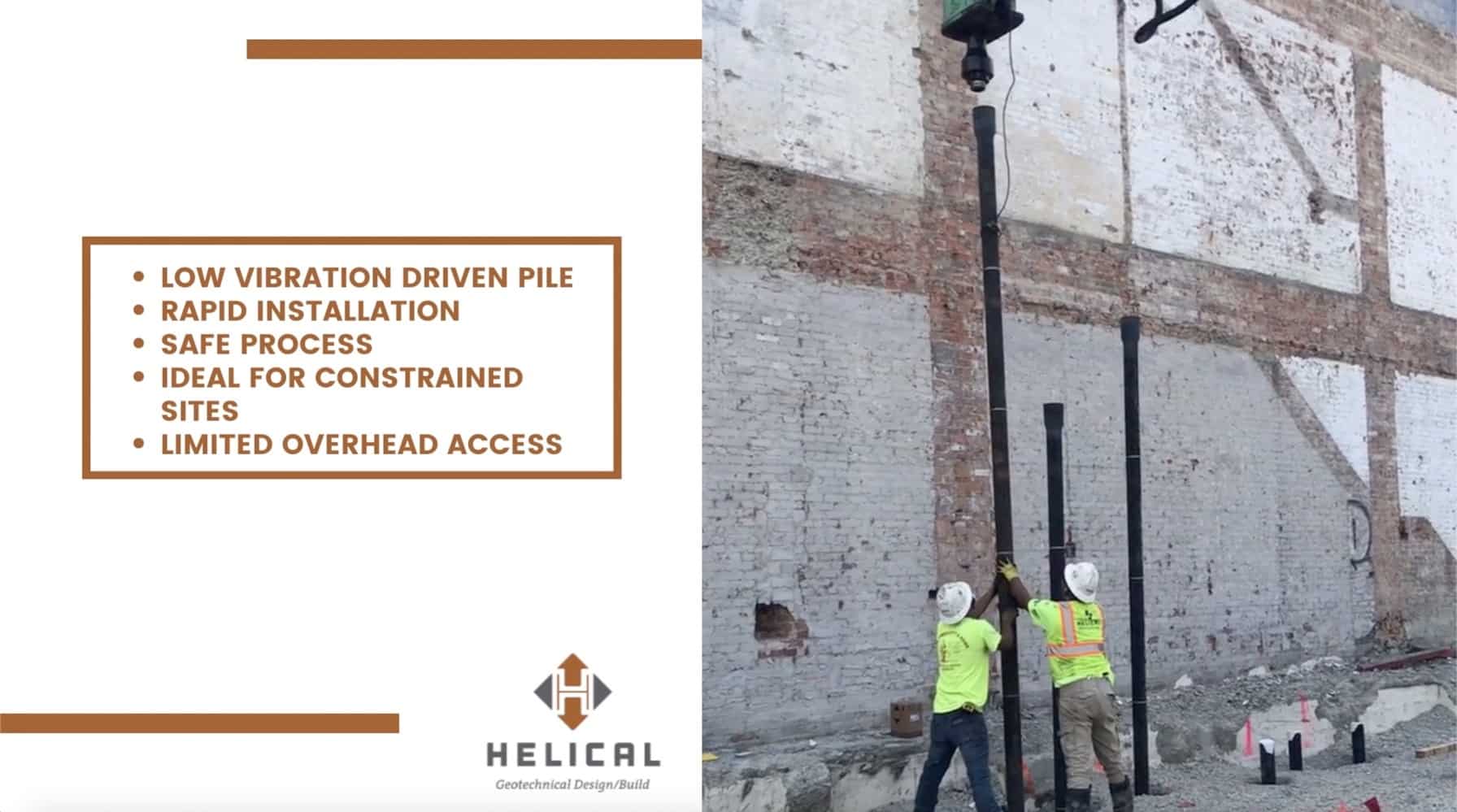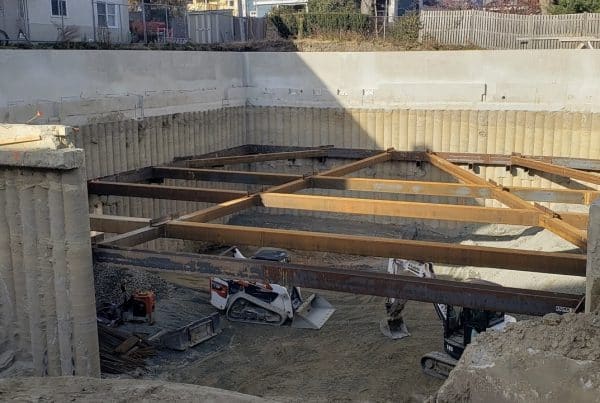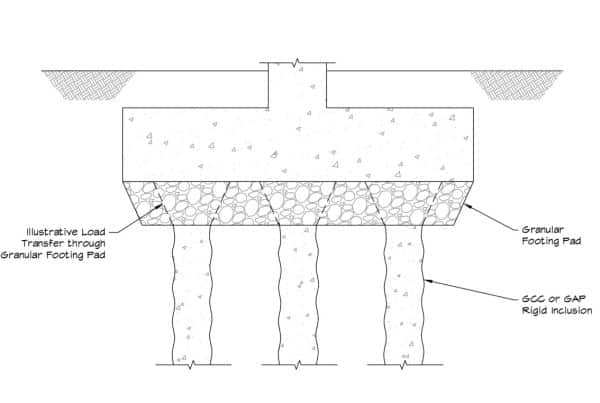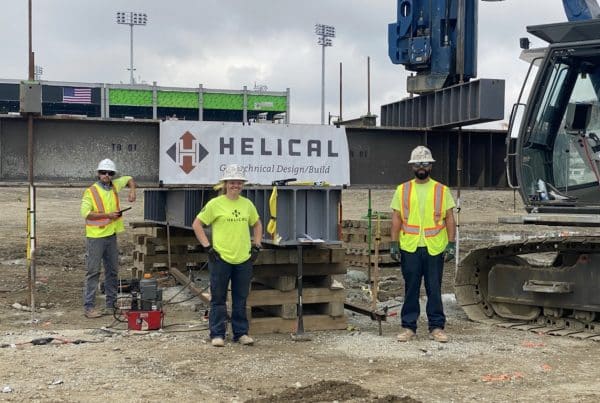DRILLED MICROPILES
Drilled Micropiles (DMPs) are a versatile type of deep foundation element that fill a “niche” in geotechnical construction. They generally consist of a combination of steel casing, threaded bar, and grout, and are installed using rotary wash or compressed-air drilling methods. DMPs derive their capacity through side friction between the grout and surrounding soil or bedrock. They provide high capacity, create minimal vibrations, can be drilled though obstructed soil conditions, and can be installed within limited overhead space (≤8 feet). For these reasons, we install lots of DMPs where driven piles aren’t a good fit. They can be a great tool when they’re necessary. However, some of the drawbacks of DMPs (compared to driven piles) are that they:
- Have some inherent complexity that can make design, approval, and installation somewhat complicated (and yes, a little messy on site).
- Are relatively expensive (tough on budget).
- Are generally slower to install (tough on schedule).
DUCTILE IRON PILES ARE MICROPILES MADE SIMPLE
Ductile Iron Piles (DIPs) have been around for years and are being used frequently by project teams to provide a simpler alternative to traditional DMPs. They consist of modular pile sections that are connected by a proprietary Plug & Drive system. DIPs are installed with an excavator fitted with a high frequency hydraulic hammer which drives the pile sections into the ground in rapid succession with minimal vibrations. DIPs develop relatively high capacities through either end-bearing on dense soil or bedrock, or by developing frictional capacity along a grouted bond zone within competent soils. Check out the short video below illustrating an end-bearing DIP installation:
Ductile Iron Piles offer the following features:
- Rapid Installation – Installation rates are typically at least 2 to 3 times faster than DMPs and can exceed 1,000+ feet/day.
- Lower Price – Cost savings on many projects is in the range of 25 to 50% over DMPs.
- Low Vibrations – DIP hammers generate high frequency percussion energy with vibrations that are typically ≤1 inch per second (ips) to allow installations directly adjacent to or inside of existing structures.
- Low Overhead Clearance – The excavator-mounted hammer and modular pile set-up require as little as 18 feet of overhead clearance.
- Friendly Carbon Footprint – DIPs are manufactured from 99% recycled materials offering a sustainable foundation solution.



